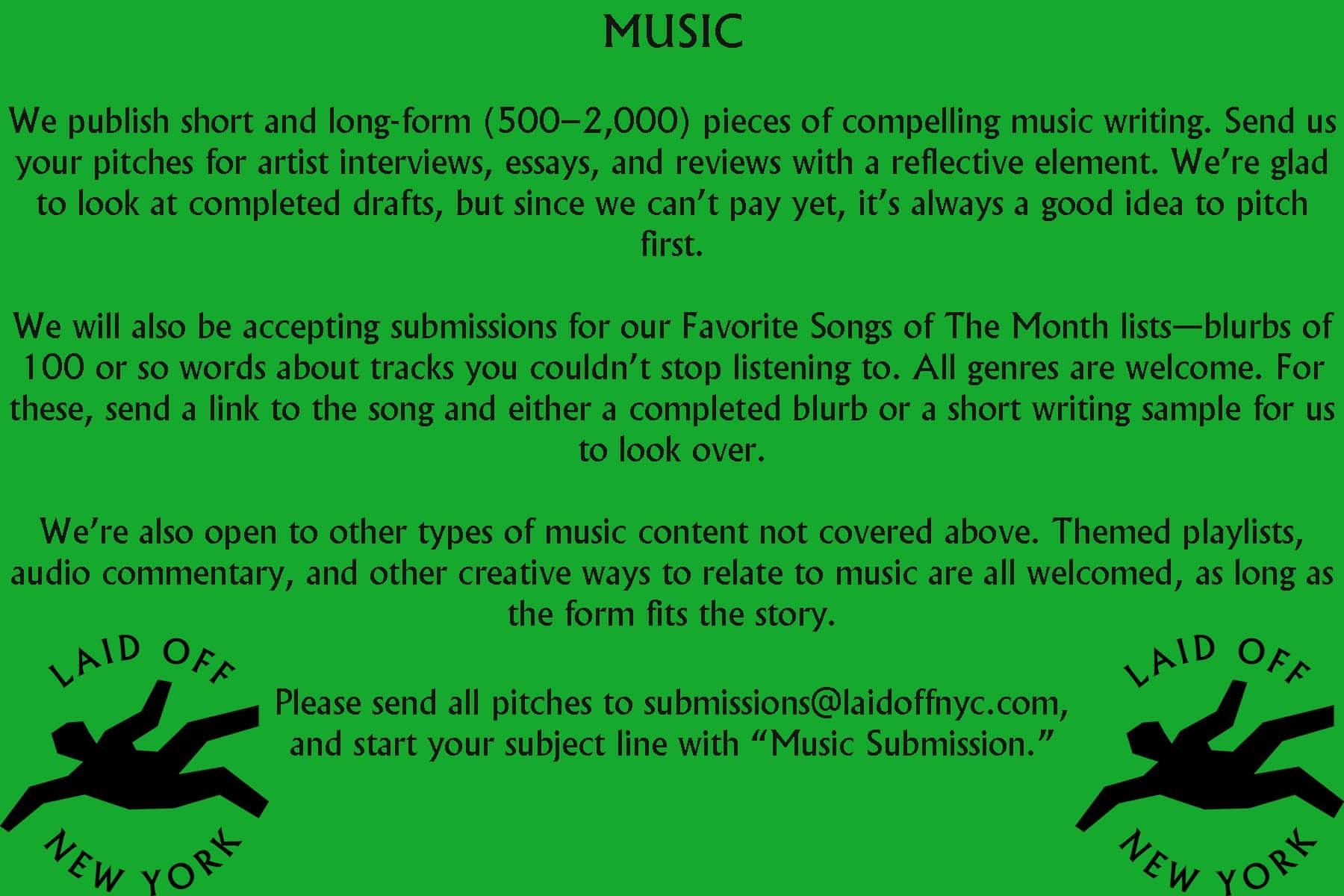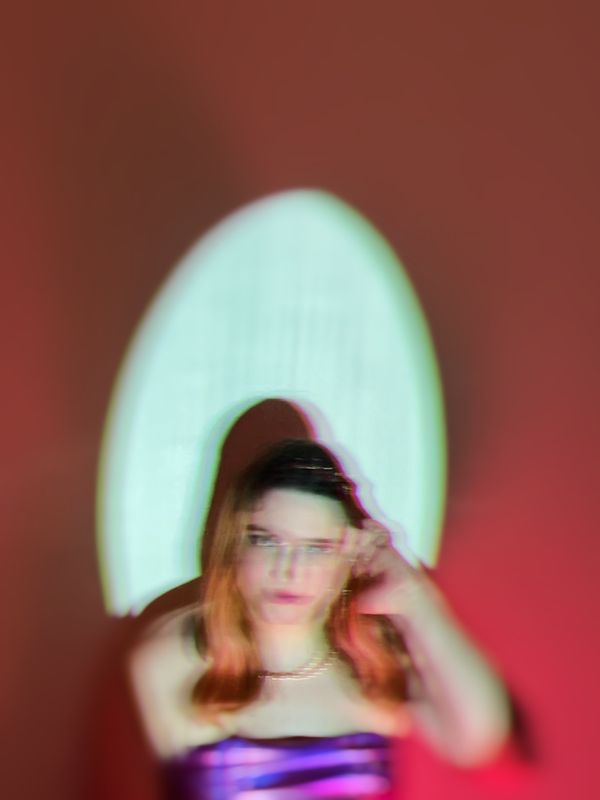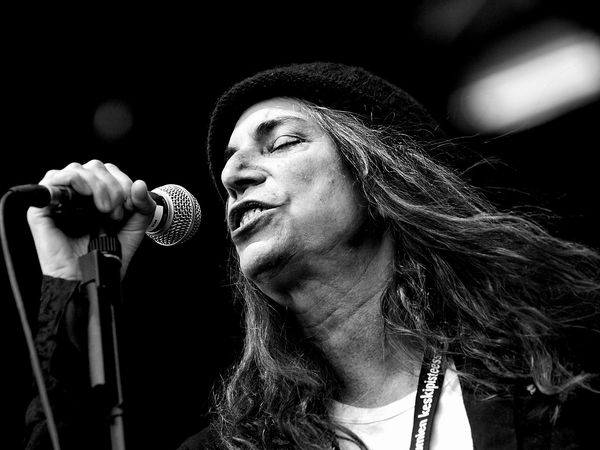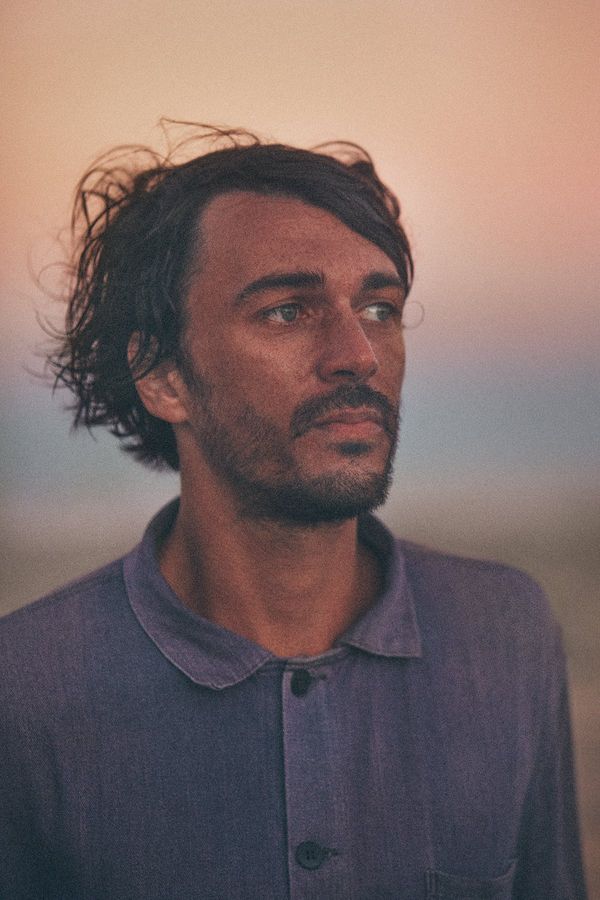by Evan Lee
Based in Chicago, Hedra Computer Rowan is the proprietor of Body Milk Tapes, a record label that primarily documents the community of musicians who would perform and collaborate at parties thrown at her former home, the Ashland Gymnasium. After a year without D.I.Y. shows, Body Milk has pressed its first physical tape in nearly three years: Rowan’s nothing’s wrong, now you’re beside me again.
The new album may be her best yet. It introduces, and is built almost entirely of, her self-described “new voice.” This cyborg creation is a digital soup of bespoke voice banks, vocal synthesizers and singing in the most traditional sense. She shows it off in new environments ranging from atonal soundscapes to theatrical sing-a-longs. Rowan’s deeply felt, though often irreverent, computer compositions have never been so singular.
Ms. Rowan took a break from packing tapes to discuss superheroes, SOPHIE, finding her new voice, and becoming one with the computer.
EVAN: First off, how was the Snyder Cut? You told me you watched it yesterday.
HEDRA: I will say, on the record, that Gal Gadot has one good outfit in the film. That’s my review.
OK, cool. Great. Let’s talk about nothing’s wrong, now you’re beside me again. I think this is my favorite record in your oeuvre. It sounds like your most fully realized project, to my ears.
I tried to make something about my voice in 2018. [Body Milk scenester] Jen Hill and I were going to do a split tape of some sort, but I was really bad at it, and also too shy, and didn’t know the right tools to make it. So I scrapped it several times, and I finally came back to it. I decided to make something that could be a full utterance of my voice from start to end—speaking, singing, moaning, whatever.
I know a magician might not want to reveal all of her tricks, but could you tell me a little about the creation of your voice for this project?
Without revealing too many secrets... except on one track—and it’s pretty obvious which track—all the sounds [on the record] are made from either a vocal synthesizer, my voice, or some combination of the two. The idea is that they all could hypothetically be coming from my body.
I started it by making sounds in PRAAT, which is a linguistics software. It has articulatory synthesis tools, which allow you to plot out how and where your voice box and mouth move over a certain period of time in order to generate the sound. Listening back to those, especially mixing them in a certain way, was very eerie to hear for the first time; it sounds like stuff that is happening in my body when I’m doing it. That’s at least how I came to see it.
As I was doing some research on the vocal synthesizer Vocaloid, I found this promo video which involves a guy producing some big room EDM with these computer generated vocal hooks. It was truly eerie.
I like that a lot. There’s an uncanny quality to these vocal synthesis applications and vocal synthesizers that I think went [in my favor]. I want to hear a voice that’s uncanny; I want mine to be sort of uncanny and ethereal. In combination with all the other stuff, I like that there are some places where you can’t tell the source of the sound, but you can just imagine it’s a beautiful girl singing.
Can we talk more about uncanniness? I feel like there’s a very uncanny thread through your work. There’s a sense of humor that comes through in all of your music.
There’s a lot of precedent for the eerie, ethereal girl, and it is kind of funny. Not only the machine aspect of synthesizers and stuff; there are a lot of disparate vocal influences on here: ‘90s trip hop [artists] like Dido, who have all these amazing qualities of the voice where its produced in a way that sounds a little fake, a little uncanny, but the human aspects of the voice are really over-exaggerated. Dido’s always using the break in her voice [sings a Dolores O’Riordan-style aah-UH], that sort of Cranberries thing. And that’s also where a lot of interesting sounds happen in terms of articulatory synthesis; the break in the voice is often the most interesting site. To bring it back around to humor, I can’t do anything without coming at it from a humorous perspective because otherwise it would just be really sad. [Laughs]
I noticed that this record is dedicated to SOPHIE.
SOPHIE died during the making of the album. Some of it was made with Sophie in mind; some of it was inspired by her. A lot of trans girls have deep feelings about our voices, [our] struggles to use them. It’s an aspirational album. I wish my voice could sound like that. In the Snyder Cut or the last Spider-Man movie, there’s this focus on collective grief. Like, Superman is dead, Ironman is dead. The greatest superheroes in the world are dead, and everyone knows it. That’s kind of what it felt like when SOPHIE died. She was a real superhero. The way she debuted her voice was really influential for someone who, from fifth grade on, didn’t want to sing in front of anybody. There are a lot of trans girls that use their voices in intense and cool ways, and Sophie was the most super of them.
I was able to follow a narrative arc from the first song, which I thought was the least clearly derived from a voice, to the last song, which felt like a pop song.
It is! It’s like a Dido pop song. I conceived of the album as all [the ways] I’m comfortable using my voice—to speak, to utter, to sing. It starts out in that proto-vocal space, where it’s just a vocal synthesizer and you hear a lot of gnarly sounds. Then it goes into the second track, which I conceptualized as speaking. Then there’s some very obvious singing, and then an extrapolation of other things I would want to sing. I had to go through a process of figuring out what I was comfortable saying was my voice. And a lot of that had to do with specific genres that I felt I could make my voice sound good in, and one of those was trip hop from the late ‘90s, early millennium. That’s where it all comes together at the end. I’m glad you saw a narrative arc, because for me, it’s big and confusing and muddled. At least it’s clear to someone.
And also a progression towards confidence?
Absolutely. To me, the beginning sounds a little like crying. A lot of the vocal parts are voice-banked. I used software to record different syllables and then strung them together on a Vocaloid-like program called UTAU, which you can create voice banks for. “ur deadly, ur heavenly” is an extrapolation of a piece by Orlande de Lassus, rendered with my voice bank.
Pretty much all of the tools I used are free or easily accessible, so it felt almost like an exercise in voice training, which is something a lot of trans girls do when we’re first coming out. We find ways to inhabit a more feminine vocal space. And that’s hard for me as someone who uses a lot of vocal fry. So the experience of making this album, which I’m gonna say is all my voice, was an affirming experience and also a terrifying one. It felt like I was working on myself.
In tinkering with the freeware.
Right. The tinkering on the settings, the experiments that happened to discover the sounds, felt like I was tuning up my actual voice through my computer renderer. A very cyborg thing. Cyborg feminism has been the way for some time now, not to bring up Donna Haraway, which I always do. Especially during [the] pandemic, the tools at my disposal on a computer have become part of my body, and they are part of the things I create and also the way that I perceive, and aspire to utter. Aspiration is the genre.
You’ve got a song called “aspiration porn.”
Everything that I do with my voice is trying to achieve what I really want, which is to be this beautiful cyborg powerful princess person, and to be able to create these sounds with my voice. That comes back to the idea of making music to work through stuff or work on myself. The aspiration is here [holds right hand high] and the music is here [holds left hand a few inches lower]. It never quite matches up to what you want it to be in your wildest hopes and dreams, and sometimes that’s good.
Body Milk hasn’t been able to put on its monthly shows for the past year. How are things going with the label?
Body Milk was always a way for me to socialize in ways that are comfortable to me, [having] awesome musicians come to my apartment and play music. There was a lot to be done at the shows, so I didn’t have to talk to too many strangers, but the ones I did [talk to] were really cool. It felt like I was cheating by getting to meet and work with all these great people, just like, outside my door. The pandemic has solidified a lot of collaboration I started outside of Body Milk: I’ve been making a lot of music with yoshi [perfect], as Hell and the High School. Also, we’re putting out tapes again, which is something that we stopped doing for a while. We had some extra money for shows from Bandcamp sales, so I used it for tapes instead. Tapes can be disseminated in a way that feels more realistic and important than it did when we could have physical shows. The physical version of this record came about as a collab with Jake Leech, who’s a great photographer, musician and friend. He took all the photos for the album and was involved in the conception of the packaging: a little iridescent bag [with] the tape and a little index card [inside]. It was cool to work with him on this and also to efficiently make packaging which looks cool without being too much of an expense.
The baggie with the coordinated colors seems like a more special item than, say, a plastic case.
Right! It’s a trick.
I’m excited to receive mine.
I just got all the tapes yesterday. You know what’s a good tape-stuffing movie?
What?
The Snyder Cut.

Evan Lee is a paralegal living in Chicago.
*Thumbnail image: Hedra Rowan, by Jake Leech



